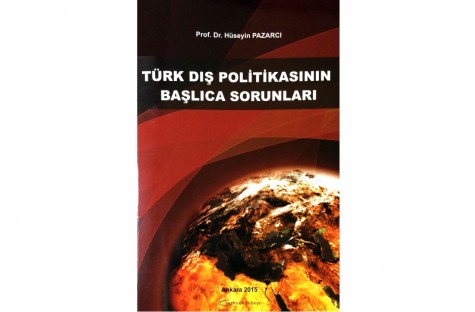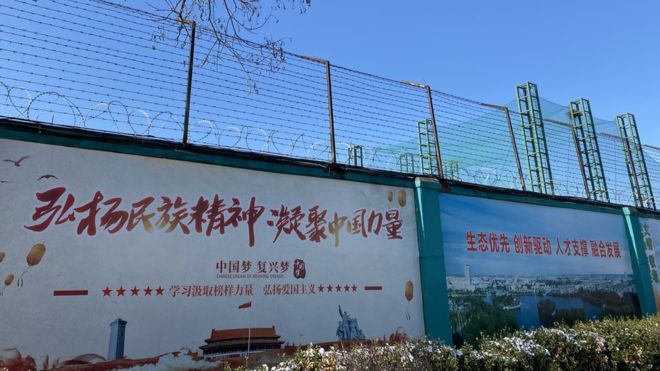In a research conducted to be addressed during the World Economic Forum (WEF) which will hold its traditional annual meeting at Davos in Switzerland late this month, the primary five issues which are globally seen as the greatest danger in 2013 and could entail a threat to overall stability are listed as follows:
- Growing imbalance and widening gap between the rich and the poor within both states and regions,
- Increase in the public debts of states,
- Climate change and the inability to reach a viable consensus on needed measures,
- Scarcity of water supplies,
- Demographic change and an aging population,
Looking at it from the aspect of Eurasia where Turkey is at the nexus, the issues mentioned above could be identified concretely. The European Union has not been able to come up with a solution to the unbalanced distribution of income during the ongoing crisis since 2008. For instance, family incomes have shown a decrease of 20% in Greece, 8% in Spain and 7% in the Greek Cypriot Administration of Southern Cyprus. On the other hand, it has increased in Germany, France and Holland. This imbalance has sharpened in each country and as with the example of France, practices for balancing with new taxes have been introduced. It is possible to observe similar woes and imbalances within the developing economics of the Eurasian geography.
Increase in public debts has been underlined in its most intense form with the crisis the European Union is facing as it has emerged that the solution lies in strengthening the common monetary union through a centralized financial system. However, neither the Commission President’s comprehensive report which foresees radical changes, nor the Council President’s more diluted report have received support during the December summit. On the other hand, due to the weight of investment funds, a more balanced outlook has emerged in Eurasia’s developing economies.
The threat of climate change is global and no country has a way to escape from it. When considering that the East and South of Eurasia is essentially subjected to more severe climate conditions, it is possible to say that the effect on that geography could be more relative.
Decrease in water supplies is an issue which is of concern to Turkey in particular. Turkey is not a country rich in water supplies. Water basins and resources have not been distributed in a balanced manner. Eastern Anatolia, with its trans-boundary rivers provide the primary water supply for its eastern and southern neighbors. The distribution and sharing of this commodity which is getting scarce and gaining in value is posed to be one of the outstanding subjects of the future. Similar worries are also valid for Central Asian republics.
The aging of population and decrease in the ratio of young population, though regarded more as a problem of developed economies, often with examples given from the European Union, demographic change emerges as a more widespread issue. This development, observed in Armenia as well as in Russia, is closely related to the potential of economic development and political power.
These issues, which are foreseen to entail the global agenda’s priority issues in 2013, while on the one hand shed light on some facts of economic mobility shifting towards Asia and the Pacific, on the other hand help in providing food for thought on the reasons for potential conflicts and instability.
© 2009-2024 Center for Eurasian Studies (AVİM) All Rights Reserved
No comments yet.
-
FORTRESS EUROPE PROPELS TURKEY TOWARDS EURASIA
Alev KILIÇ 12.02.2013 -
THE CENTENNIAL OF THE BALKAN WARS
Alev KILIÇ 16.10.2012 -
DOUBLE STANDARDS IN EUROPEAN UNION’S EASTERN PARTNERSHIP PROGRAM
Alev KILIÇ 02.04.2013 -
THE BALKANS AND TURKEY
Alev KILIÇ 25.04.2013 -
ANOTHER SAMPLE FOR THE ERRONEOUS ONE-SIDED HISTORICAL MEMORY
Alev KILIÇ 03.12.2012
-
 ARMENIAN ATTEMPTS FOR THE RECOGNITION OF NAGORNO KARABAKH AND BELGIAN PARLIAMANTERIANS’ VISIT TO STEPANAKERT
ARMENIAN ATTEMPTS FOR THE RECOGNITION OF NAGORNO KARABAKH AND BELGIAN PARLIAMANTERIANS’ VISIT TO STEPANAKERT
Aslan Yavuz ŞİR 27.03.2017 -
THE AFTERMATH OF APRIL 24
Ömer Engin LÜTEM 11.05.2015 -
 BOOK REVIEW: “TÜRK DIŞ POLİTİKASININ BAŞLICA SORUNLARI” (MAJOR ISSUES OF THE TURKISH FOREIGN POLICY)
BOOK REVIEW: “TÜRK DIŞ POLİTİKASININ BAŞLICA SORUNLARI” (MAJOR ISSUES OF THE TURKISH FOREIGN POLICY)
Hazel ÇAĞAN ELBİR 06.08.2015 -
 FACTORIES USING FORCED LABOUR OF THE UYGHURS PROVIDE SUPPLIES FOR 83 WELL-KNOWN BRANDS
FACTORIES USING FORCED LABOUR OF THE UYGHURS PROVIDE SUPPLIES FOR 83 WELL-KNOWN BRANDS
Gülperi GÜNGÖR 09.03.2020 -
 BLACK STAIN ON COUNTER TERRORISM: HAMPIG SASUNYAN CASE
BLACK STAIN ON COUNTER TERRORISM: HAMPIG SASUNYAN CASE
AVİM 28.01.2020
-
19.04.2024
Türk-Ermeni İlişkileri Üzerine Ömer Engin Lütem Konferansları 2023 -
11.04.2023
Türk-Ermeni İlişkileri Üzerine Ömer Engin Lütem Konferansları 2022 -
27.03.2023
RADİKAL ERMENİ UNSURLARCA GERÇEKLEŞTİRİLEN MEZALİMLER VE VANDALİZM -
17.03.2023
PATRIOTISM PERVERTED -
23.02.2023
MEN ARE LIKE THAT -
03.02.2023
BAKÜ-TİFLİS-CEYHAN BORU HATTININ YAŞANAN TARİHİ -
16.12.2022
INTERNATIONAL SCHOLARS ON THE EVENTS OF 1915 -
07.12.2022
FAKE PHOTOS AND THE ARMENIAN PROPAGANDA -
07.12.2022
ERMENİ PROPAGANDASI VE SAHTE RESİMLER -
30.03.2022
Türk-Ermeni İlişkileri Üzerine Ömer Engin Lütem Konferansları 2021 -
01.01.2022
A Letter From Japan - Strategically Mum: The Silence of the Armenians -
01.01.2022
Japonya'dan Bir Mektup - Stratejik Suskunluk: Ermenilerin Sessizliği -
11.02.2021
Türk-Ermeni Uyuşmazlığı Üzerine Ömer Engin Lütem Konferansları 2020 -
03.06.2020
Anastas Mikoyan: Confessions of an Armenian Bolshevik -
08.04.2020
Sovyet Sonrası Ukrayna’da Devlet, Toplum ve Siyaset - Değişen Dinamikler, Dönüşen Kimlikler -
18.03.2020
Türk-Ermeni Uyuşmazlığı Üzerine Ömer Engin Lütem Konferansları 2019 -
08.03.2019
Türk-Ermeni Uyuşmazlığı Üzerine Ömer Engin Lütem Konferansları 2018 -
12.06.2018
Ermeni Sorunuyla İlgili İngiliz Belgeleri (1912-1923) - British Documents on Armenian Question (1912-1923) -
02.12.2016
Turkish-Russian Academics: A Historical Study on the Caucasus -
01.07.2016
Gürcistan'daki Müslüman Topluluklar: Azınlık Hakları, Kimlik, Siyaset -
10.03.2016
Armenian Diaspora: Diaspora, State and the Imagination of the Republic of Armenia -
24.01.2016
Ermeni Sorunu Temel Bilgi ve Belgeler (2. Baskı)
-
AVİM Conference Hall 24.01.2023
CONFERENCE TITLED “HUNGARY’S PERSPECTIVES ON THE TURKIC WORLD"









